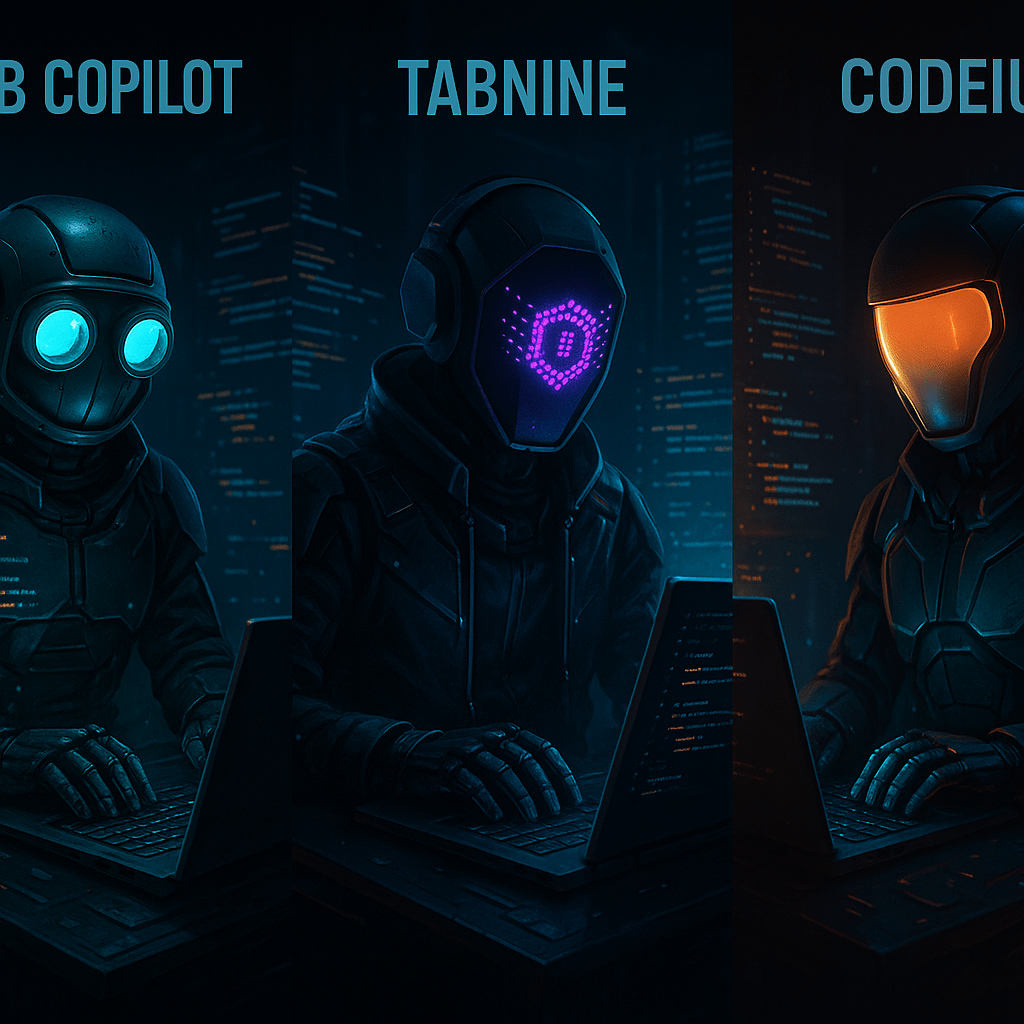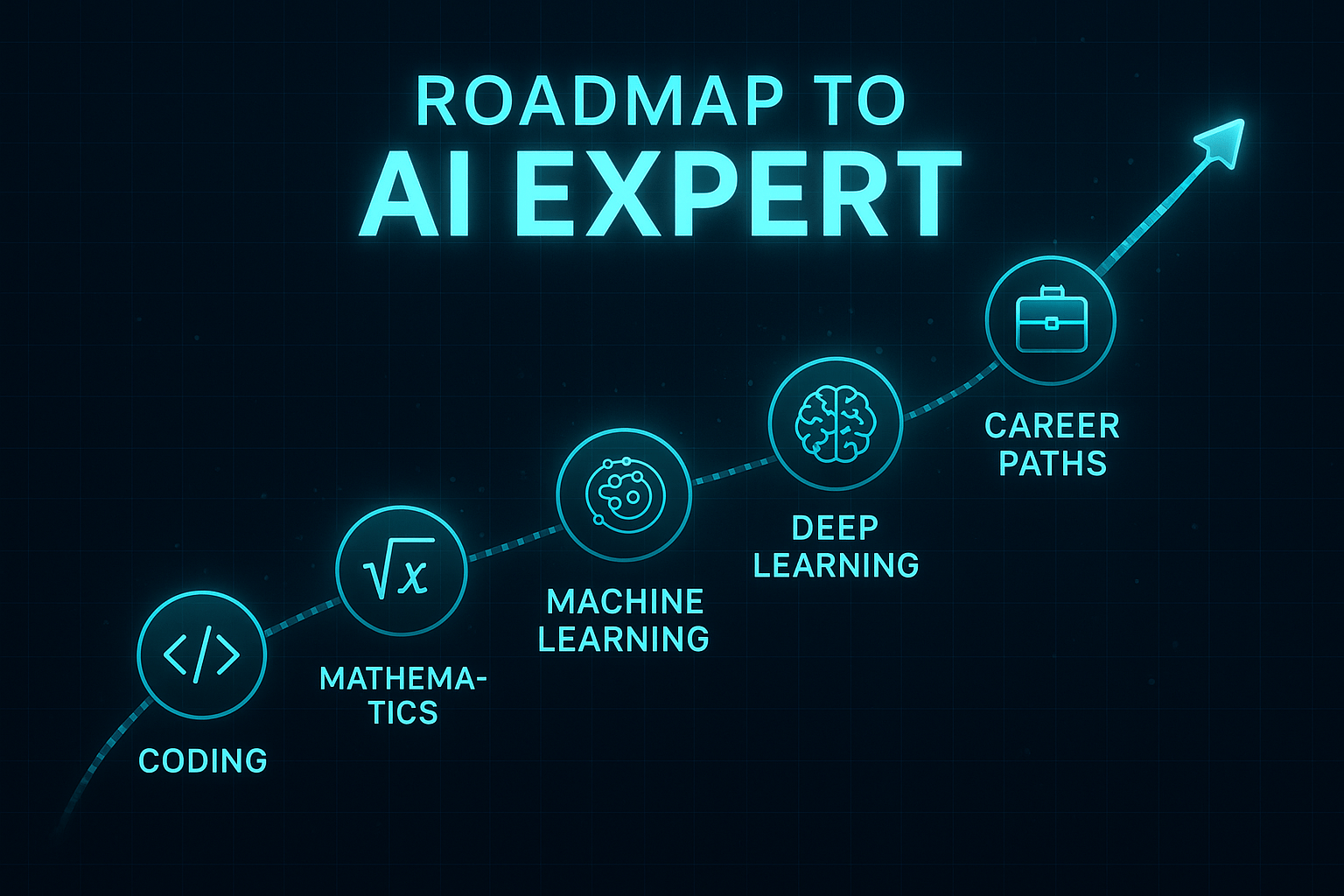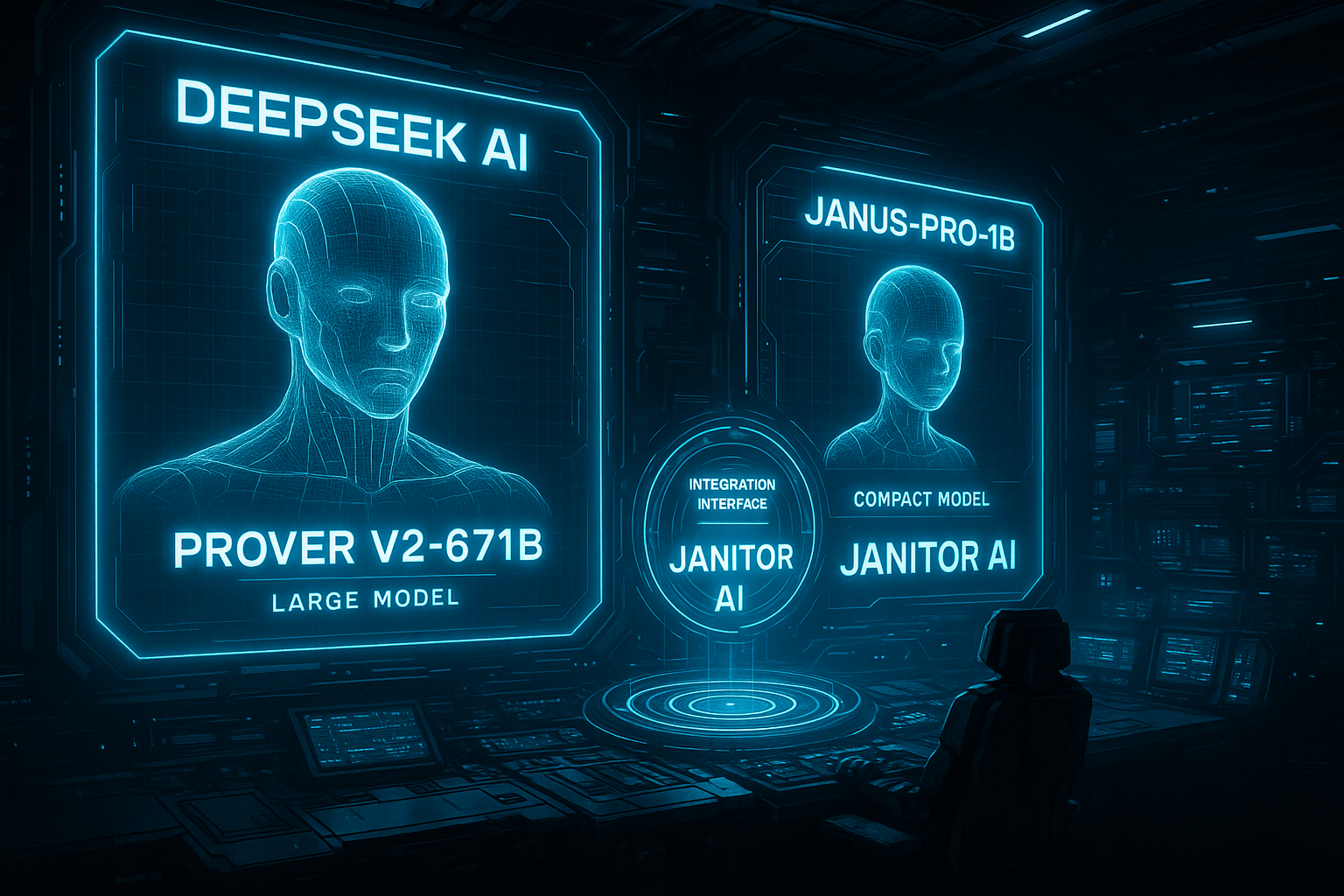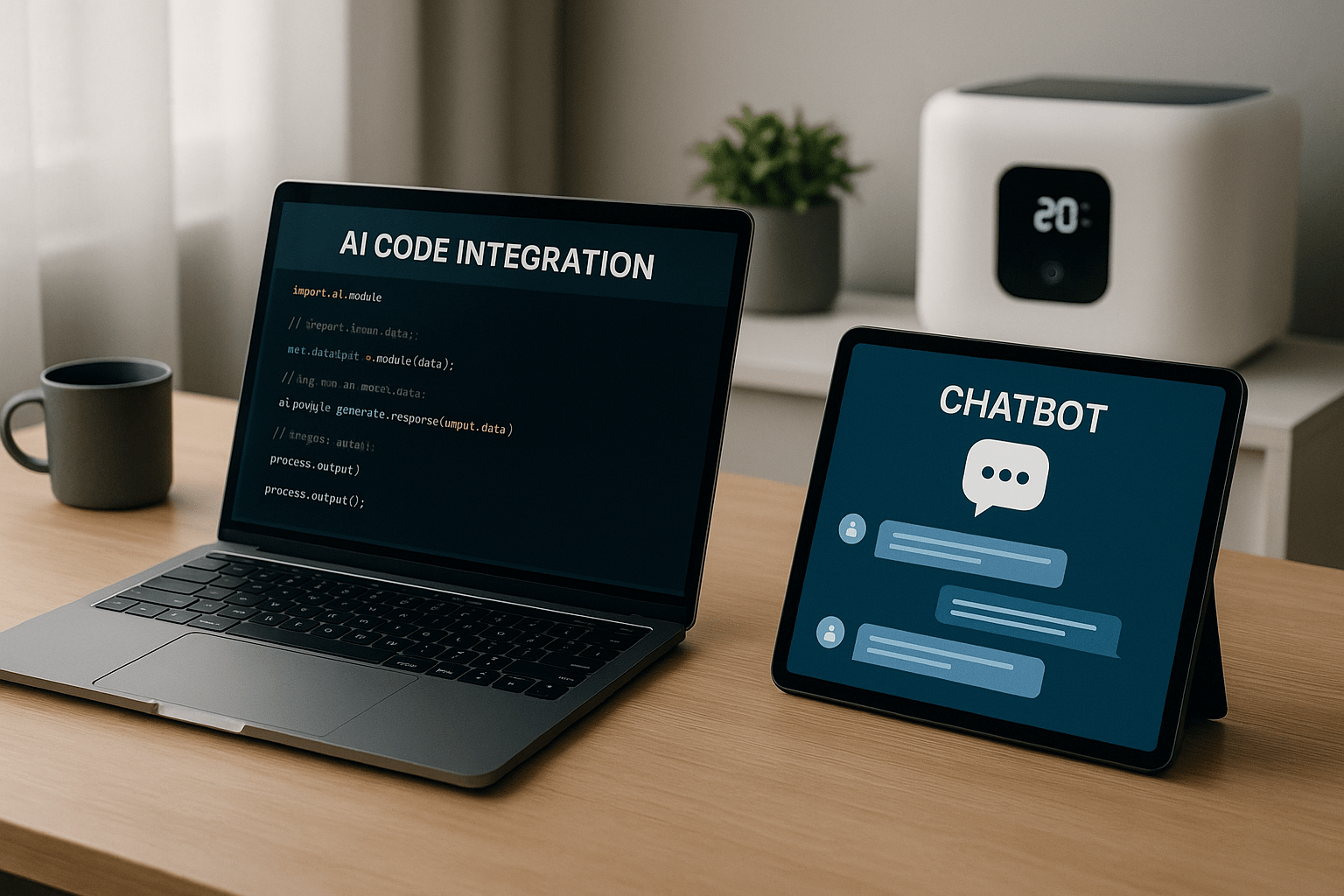Over the last few years, the emergence of artificial intelligence in software development has revolutionized coding, review, and maintenance of code by developers. AI coding assistants will be indispensable in the toolkit of contemporary developers by 2025. Of these, GitHub Copilot, Tabnine, and Codeium have emerged as the top providers.
These tools are more than autocompleters—patterns are analyzed, entire blocks of logic are suggested, and even bugs are picked up before you even execute the code. And with so many AI coding utilities out there, the question is no longer which ones are available, but rather which AI coding assistant is the best in 2025?
At Pensora, we analyze the capabilities, strengths, and weaknesses of every tool to assist you in making a choice based on which one best fits your workflow.
Key Takeaways
- Coding AI tools are necessary in 2025, with real-time support and increased developer efficiency.
- GitHub Copilot, Tabnine, and Codeium reign supreme in AI coding assistants.
- Each tool is superior in different aspects: Copilot in code generation, Tabnine in speed and security, and Codeium in flexibility and pricing.
- Your ideal assistant will vary based on your programming language, team environment, and integration requirements.
- AI tools are transforming the way developers write code and interact with code, and this is testing coding standards, collaboration, and reliance on automation.
The Role of AI Coding Assistants in 2025
AI coding assistants have evolved from simple autocomplete tools to complete development partners. They know context, are aware of your intent, and offer relevant code suggestions across languages and frameworks.
These tools alleviate cognitive load, accelerate development, and enable clean, error-free code. They also act as teaching tools for junior developers, instructing them on best practices and foreign syntax.
These days, developers depend on AI to construct whole applications, rewrite codebases, author documentation, and even repair security defects in real-time. What used to take hours now takes minutes to accomplish thanks to GitHub Copilot, Tabnine, and Codeium.
GitHub Copilot: Pioneering With Deep Integration
GitHub Copilot, fueled by OpenAI’s Codex model, is still the most well-known AI coding assistant in 2025. Copilot was created in collaboration with Microsoft and is highly integrated into Visual Studio Code, GitHub, and other Microsoft software, which makes it a natural fit for many developers.
Copilot’s biggest strength is its contextual understanding. It doesn’t just complete your current line—it predicts your entire function or block of code based on surrounding context. Its natural language-to-code capability allows developers to describe what they want in plain English and get working code in seconds.
Pros:
- Best-in-class contextual understanding.
- Supports multiple languages and frameworks.
- Excellent documentation and GitHub integration.
- Continues to improve via OpenAI’s latest LLM updates.
Cons:
- Requires a subscription after a free trial.
- There could be some outputs without security or performance optimization.
- Deep dependence on the Microsoft/GitHub ecosystem.
Where GitHub is the norm and VS Code is the go-to editor in team settings, Copilot comes naturally and yields significant payback in productivity.
Tabnine: Focusing on Privacy and Performance
Tabnine is the AI coding helper that harmonizes performance with data privacy. Unlike Copilot, Tabnine provides on-premise models, which makes it the favorite in enterprise settings and teams with stringent security needs.
Tabnine employs smaller models that are fine-tuned to particular programming languages, which leads to quicker suggestions and less latency. It is suited for high-performance settings, especially where offline access or bespoke model deployment is required.
Advantages
- On-premises deployment possibilities for privacy-sensitive teams.
- Efficient, low-latency completions.
- Extensive IDE support, including IntelliJ, VS Code, Sublime, and others.
- No data exchange with third-party servers in private mode.
Cons:
- Doesn’t have Copilot’s natural language-to-code flexibility.
- Suggestions can be poorer in context.
- Fewer collaboration features than GitHub’s environment.
For companies with compliance and legal restrictions, Tabnine is still a reliable option. Its offline and enterprise-oriented plans make it a market favorite in regulated industries.
Codeium: The Quickest Growing Contender
Codeium has popped up quickly in 2025 as a quality, free AI coding tool that’s swiftly becoming popular among developers. In contrast to Copilot and Tabnine, Codeium is positioning itself as open, flexible, and affordable, providing top-notch autocomplete and natural language features at no charge to solo users.
Its collaboration with more than 70 programming languages, combined with its speed of inference and support of several top IDEs, provides Codeium with a strong competitive advantage.
Advantages:
- Entirely free for single developers.
- Competing code suggestions comparable to Copilot.
- Responsiveness and speed on several IDEs.
- Regular updates and live development.
Disadvantages:
- Still evolving in enterprise integrations.
- Less brand trust compared to GitHub or Tabnine.
- Fewer advanced pair programming and team workflow features.
Codeium’s success mirrors an increased need for affordable AI coding assistants. For independent developers, startups, and instructors, Codeium offers high value without the cost.
Which AI Coding Assistant Is Best for You in 2025?
Selecting the best AI coding companion in 2025 highly relies on your development environment, team organization, coding patterns, and privacy requirements. Every tool—GitHub Copilot, Tabnine, and Codeium—is developed for a particular kind of developer and scenario. Here’s how they stack against each other:
GitHub Copilot
Ideal for: Developers on the Microsoft stack, in team-based environments, or interested in full-featured language comprehension.
Most notable strengths:
- Handles natural language inputs.
- Deep integration with Visual Studio Code and GitHub.
- Wide language support (50+ languages).
- Business-class with advanced collaboration features.
Considerations:
- No offline support.
- Medium speed relative to competition.
- The free plan has some limitations; a subscription is required.
Tabnine
Best for: Enterprise teams or developers who value security, speed, and offline use.
Key Strengths:
- Supports offline deployment for secure environments.
- Suggests code quickly with low latency.
- Extremely wide IDE support across platforms.
- Enterprise-class deployment and data privacy features.
Considerations:
- No natural language-to-code prompts supported.
- Contextual understanding is less than Copilot.
Codeium
Best for: Freelancers, students, and solo developers looking for a cost-free, high-performance AI assistant.
Key Strengths:
- Completely free to use for individuals.
- Natural language queries supported.
- Fastest response time of the three.
- Supports more than 70 programming languages.
Considerations:
- Limited offline capabilities.
- Still building enterprise-level features and integrations.
- Newer to market than Copilot and Tabnine.
Finally, there is no single best answer. GitHub Copilot excels at integration and contextual relevance, Tabnine is strongest at privacy and enterprise support, and Codeium has the superior free option with increasing capabilities. Your best tool will be specific to your workflow and priorities.
The Future of AI Coding Tools
As AI advances, so will these assistants. In 2025, we are moving towards tools that don’t just suggest code but also comprehend the entire software development process—from debugging and testing to documentation and deployment.
But with that comes big questions around code quality, uniqueness, and the degradation of developer skills. Are we producing better developers or more dependent ones?
At Pensora, we investigate how this wave of technology is transforming the future of coding—and what that means for solo developers, teams, and the software industry as a whole.
Conclusion
There isn’t a one-size-fits-all answer in the GitHub Copilot vs Tabnine vs Codeium battle. Every AI coding assistant has a special purpose and target audience. Selecting the best means knowing your development needs, top priorities, and ecosystem.
What’s apparent is this: AI coding tools in 2025 have revolutionized software coding. Whether you’re creating enterprise-level apps or starting from scratch, these aides are no longer niceties—they’re necessities.
As the world keeps changing, so will these tools. And remaining ahead requires staying aware. Keep up with Pensora for expert analysis of what’s to come in development.











Leave a Reply